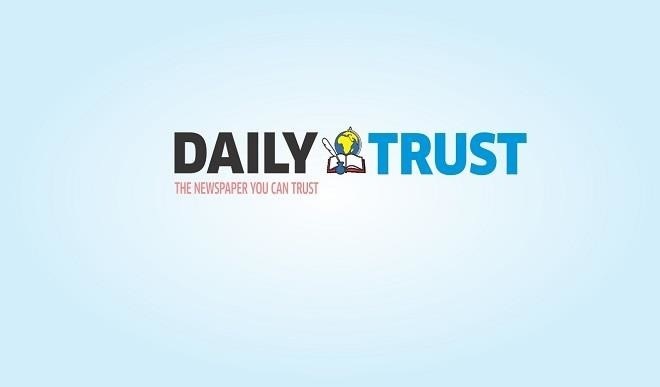
If there is one thing that all Nigerians agree upon, it is that our country is sick. I can bet with you that this is not intended to be a pun. It is the truth. All is not well with us as a nation. And we all know the root of our problems. We have turned away from God. There are perhaps more churches and mosques than schools and industries in Nigeria, but this is not a sign that we are a godly people. We wear religion like cloth, but it is only skin deep. Our hearts are far from God. We have become more or less like the Pharisees of old – hypocrites – whom Jesus, reiterating the words of the Prophet Isaiah, accused thus: “These people approach me in words; they honour me with lip-service, while their hearts are far from me. The worship they offer me is useless…” (Is. 29:13; Mt 15:7). That is the fundamental cause of the many social, political and economic dysfunctions that afflict us as a people.
The crises in our political and economic life are only symptoms of a larger national affliction: our blunt refusal as a people and as a nation to follow the ways of God. Although, we profess our belief in God both in public and in private, our faith hardly spills over into the concrete events of our daily lives. On the opening page of our Constitution, we profess to be “One indivisible and indissoluble sovereign nation under God,” but we are yet to accept and submit to the dominion and sovereignty of God over our lives and our affairs. And for as long as God is not the centre-point of our national life, we will remain at the mercy of the iron hands of competing centrifugal forces pulling us away in different directions.
A blunt way to put this will be to say that Nigeria is a deeply religious but godless nation. We adorn ourselves with all the paraphernalia of religiosity. Every public event in Nigeria begins obsequiously with prayer and ends with prayer. We parade ourselves with all manner of religious titles. We flaunt our beads of prayer to the admiration of even non-believers. Our worship sessions are full of vibrant expressions of emotional-laden faith and sensationalism as worshippers sing and dance, with musical instruments playing at the highest decibels. Even conventional English salutations such as “How are you doing?” or “How is life with you?” are answered with a cliché of religious affirmation, “We thank God!” Yet, our belief in God has not fully translated into living lives of integrity.
It is clear to every discerning mind that these are perplexing and troubling times for our country Nigeria. The most visible of the numerous problems facing our country is the absence of peace. There is bloodshed, terror and violence everywhere. The signals about the state of our nation are pervasive and palpable. We seem to be on a sad race towards anarchy. From failing social and political institutions, to the crisis in the health, education and energy sectors, Nigeria seems to be travelling on a dangerous road. What is more distressing is the utter helplessness of government in addressing these challenges. The Nigeria of today is suffering from a terrible national psychosis. We are now in a season of anomie, afloat and drifting in an endless sea of moral relativism where truth and falsehood have become value-neutral.
In his April 2012 Easter Message to Nigerians titled “Hope in a Time of Trial,” Bishop Matthew Hassan Kukah lamented this growing culture of moral relativism. He asked: “Can any senior public officer ever go to jail in Nigeria for stealing? The answer is, it depends. Can Nigerians ever agree that the stealing of state resources is a sin? The answer is, it depends. Do we know how anyone can get a job that they qualify for in Nigeria? The answer is, it depends. Do we know how a good man or woman can win an election in Nigeria without money or the power to corrupt the system? The answer is, it depends. How do you gain admission into a university in Nigeria? The answer is, it depends. What qualifications do you need to get a job of a contract in Nigeria? The answer is, it depends. Having secured a job, how do you retain it or get promoted? The answer is, it depends. Is there any hope that one day the Judiciary will really and truly become blind to social status and power in Nigeria? The answer is, it depends. Will Nigeria come out of this mess or ever develop a sense of shame? The answer is, it depends.”
The tally can go on endlessly. To rephrase the statement of Bill Farrell, former Middle East correspondent for The New York Times, “There is no truth in Nigeria, only versions.” In this time of anomie – to dub the lines of the famous Irish literary genius, W.B. Yeats in his fine poem The Second Coming – “Turning and turning in the widening gyre; the falcon cannot hear the falconer. Things fall apart. The centre cannot hold. Mere anarchy is loosed upon the world.” I am convinced that deepening understanding of Nigeria’s problems is of critical importance for problem solving. My intuition tells me that the depth of the crisis we face, as a nation, demands more than politics as usual. An illness of the spirit has spread across our country, and our greatest need is for what our religious traditions often refer to as ‘the healing of the nations.’
Our deepest problems have not been politics or economy but spiritual. We have been running deficit of those metaphysical and intangible moral, ethical and spiritual values that give human societies a sense of meaning. It is this lack of those fundamental spiritual and ethical values that are manifested in our political, social and economic tribulations. Unless we discover and rediscover those values, politics alone cannot solve our problems. Good politics and good economics require for their success an unconditional allegiance to good spiritual and ethical foundations. Thus, the fundamental character of the economic and political renewal we urgently need will require a change of our hearts and our minds. But this change will require a new kind of politics and a new thinking about power – politics and power with ethical values.
Many decades ago, the great Indian sage, Mahatma Gandhi warned against what he called the seven deadly social sins. These social sins today provide an apt description of what have become accepted practices in the life of our country. Several thousand years ago, the writer of the biblical book of Proverbs warned, “Where there is no vision, the people perish” (Prov. 29:18). That ancient caveat applies to our contemporary Nigerian situation. We are seeing how a nation without vision is gradually perishing. From the violent carnage in many parts of our country to the hushed cries of our hungry and unfed children, from the death traps on our highways to our collapsed public utilities, from our inefficient and wasteful institutions to our obtuse religiosity, we are a society that has lost its way.
Real solutions require a much deeper understanding of the sickness that has afflicted us. Symptoms or signs of an ailment point to something beyond them, and only effective clinical diagnosis can address the root cause of the ailment. As Jim Wallis, one of America’s most gifted social prophets says in his seminal work The Soul of Politics, “Many signs help us interpret the cause of our present crisis. A sign is an event, a condition, an observation, a characteristic, or a phenomenon that helps to reveal the sources of our problems. Signs point us to the root causes, values, and structures that have led us to our predicament.” If we pay attention to the symptoms, we can come to understand both the nature of our problems and their potential solutions. We must find that synthesis, that crucial connection between systemic social decay and self-destruction that pervades all aspects of life in our nation. We face a kind of violence born not only of poverty but also of perverse values. When the children of our nation are planning their funerals instead of their future, it is a sure sign that we have lost our way.
What we are in dire need of amidst our many crises and contradictions is a sense of perspective. With a sense of perspective we can see how these realities hang together. It has to do with making sense of the issues and events that confront us. It has to do with how we connect the fundamental questions that bedevil us with the values and beliefs that are worthy of our allegiance.
Father Ojeifo is a priest of the Catholic Archdiocese of Abuja.

 Join Daily Trust WhatsApp Community For Quick Access To News and Happenings Around You.
Join Daily Trust WhatsApp Community For Quick Access To News and Happenings Around You.


